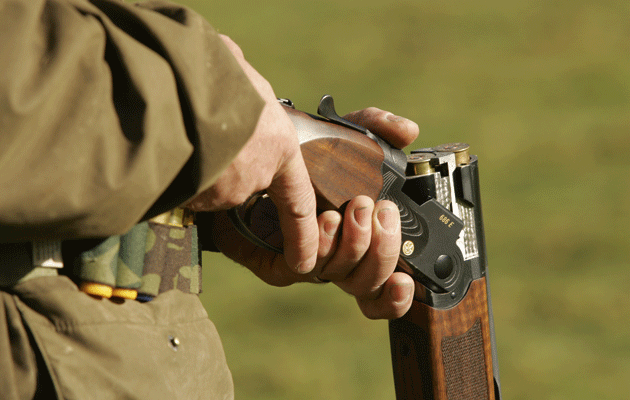Gun licence fee increases put to Parliament for approval
If Government proposals are approved, new gun licence fees will be set before May’s General Election

Government proposals to increase gun licence fees that would see the cost of a shotgun certificate rise from £50 to £79.50 have been put to Parliament for approval.
The firearms licensing fees order contains suggested increases based on the findings of a Home Office working group that included representatives from BASC, the British Shooting Sports Council and the police. The group analysed the cost to police of administering the licensing system and came up with increases that would, in its view, reflect those costs and give shooters value for money.
The public was asked for its views of the proposed increases to gun licence fees in an open consultation during November and December last year — 73 per cent of people agreed that fees should rise.
If MPs approve the increases, it will be the first time gun licence fees have risen in 13 years. If passed, the changes will come into effect on 6 April this year.
Firearms certificates will rise from £50 to £88 and renewals will increase from £40 to £62. For shotgun certificates, the cost of a grant would increase from £50 to £79.50 and renewal from £40 to £49. The increases have been calculated with an online licensing system in mind, which will be reviewed in a year’s time in accordance with Treasury guidelines, at which point a further increase in fees is possible.
Though the proposed figures appear relatively large in proportion to current costs, they are significantly lower than previous proposals. The Labour Party has indicated that, if elected, it would consider higher increases to plug funding gaps in policing and other unrelated areas.
In 2013, the police suggested an increase to £200 per certificate. BASC protested, insisting that a proper process of examining police costs was introduced and that any increases should be based on evidence, that charges should not constitute a tax on lawful gun owners, and that the process of setting fees must be in accordance with Treasury guidelines.
Announcing the new fees, Minister for Crime Prevention Lynne Featherstone said: “The UK has some of the toughest gun laws in the world and the changes we are making to fees are a huge step forward in improving the firearms licensing system as a whole.
“The increase in fees and the introduction of online licensing will end what is currently an unsustainable process for the police and will create a fairer and more effective system for forces, licence holders and the general public.
“The Government will work with police to introduce an online licensing system which will be reviewed in twelve months to assess whether costs are being fully recovered, with a view to increasing fees further if they are not.”
The Government keeps firearms licensing constantly under review, both in the interests of public safety and in order to improve its effectiveness. Her Majesty’s Inspectorate of Constabulary is also currently conducting an inspection into how the licensing system works in practice.
BASC chairman Alan Jarrett welcomed the latest development, saying that it was “a good outcome for people who shoot”.
Geoffrey Clifton-Brown MP, chairman of the All-Party Parliamentary Group for Shooting and Conservation, said: “I want to congratulate the Home Office on a job well done. Everyone agreed that, after 13 years and at a time of great financial pressure on the police, a rise in fees was long overdue. The important thing has been to ensure that the increases are evidence-based and the product of a rigorous process and that lawful gun owners are not being ‘taxed’ purely because they shoot.”
Richard Ali, BASC’s chief executive, said: “BASC welcomes the fact that the order is based on Treasury guidelines and the principles of better regulation, both introduced by the last Labour government.”
Adrian Blackmore, director of shooting for the Countryside Alliance said: “The shooting community supports a sensible rise in licensing fees alongside critical improvements to the system and application process to bring it into the 21st Century.
“Fees have been a subject of much discussion for some time, and the Countryside Alliance has been part of a Home Office Working Party that was set up to look into this issue.
“We accepted, along with the British Shooting Sports Council and other shooting organisations, that fees inevitably had to rise but that any increase had to be made alongside efficiency savings and service improvements by the police.”
Sir Peter Luff MP, chairman of the British Shooting Sports Council, said: “The decision announced on 12th March is a victory for common sense. The new fee levels are both appropriate and proportionate and settle the issue for five years. Although cost increases are always difficult to accept, I hope the shooting community will welcome the balanced resolution of this sensitive and important question.”








